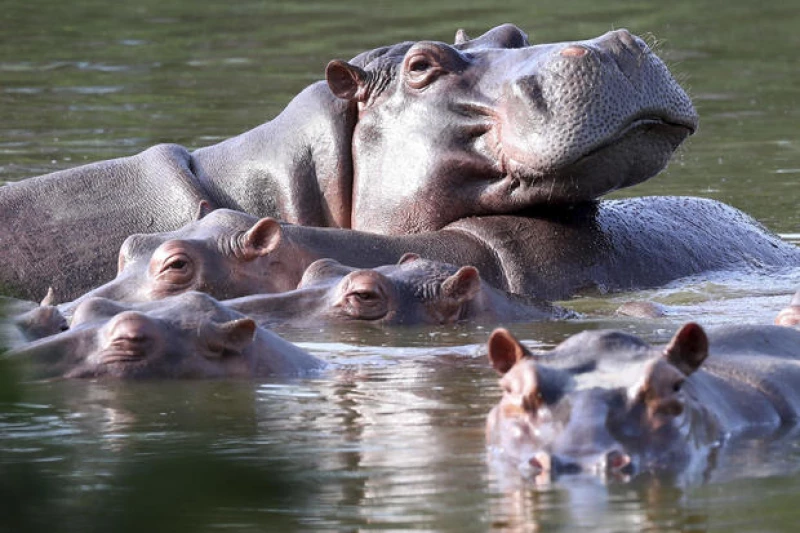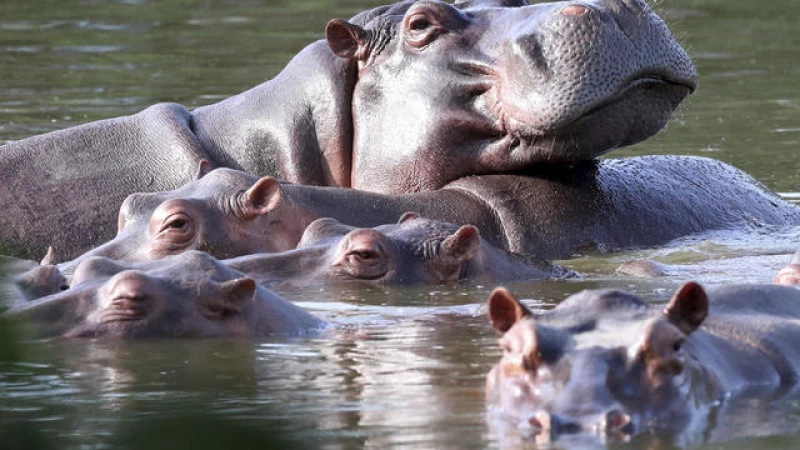Hippos Sterilization in Colombia
Colombia has initiated the sterilization of hippos, descendants of animals illegally brought to the country by late drug kingpin Pablo Escobar in the 1980s.
According to environmental authorities, two male hippos and one female have undergone surgical sterilization. This is part of a larger government effort to control the population of over 100 of these mammals that roam unsupervised in various rivers.
The plan involves sterilizing 40 hippos annually, transferring some of them to other countries, and potentially considering euthanasia.
These hippos, which have spread from Escobar's estate to nearby rivers where they have thrived, have no natural predators in Colombia. They have been classified as an invasive species that could disrupt the ecosystem.
In the 1980s, a group of hippos was brought to Hacienda Nápoles, Escobar's private zoo that later became a tourist attraction after his death in 1993. Most of these animals live freely in rivers and reproduce without any control.
Scientists have warned that the hippos' feces alter the composition of rivers and could have an impact on the habitat of local manatees and capybaras.

According to independent journalist Audrey Huse, who has been living in Colombia for eight years, the presence of hippos in the country is causing significant harm to the local ecosystem. Huse explained to CBS News that because the hippos have no natural predators in Colombia, their population is booming and they are consuming large amounts of grassland and producing waste that is poisoning the rivers. This is leading to the death of fish and posing a threat to endemic species like manatees, otters, and turtles.
The Colombian government has initiated a plan to sterilize the hippos in order to control their population. However, capturing and sterilizing the territorial and aggressive animals is a complicated task. Rain events in the area have also made it more difficult to capture the hippos, as the abundance of grass provides them with an oversupply of food, making baiting them more challenging.
Currently, it is estimated that there are 169 hippos in Colombia, mainly in the Magdalena River basin. Without intervention, this number could increase to 1,000 by 2035. The sterilization procedure is costly, with each sterilization costing about $9,800. There are also risks involved for the hippos, including allergic reactions to anesthesia or even death, as well as risks for the animal health personnel.
According to experts, sterilization alone is not sufficient to manage the growth of the invasive species. As a result, the government has decided to explore the option of transferring hippos to other countries, a plan that was announced in March. However, the cost of deporting the hippos is quite high, estimated at around $3.5 million.







